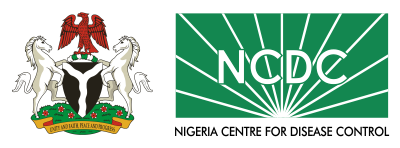With the review of Nigeria’s International Health Regulations (IHR, 2005) capacities to prevent, detect and respond to public health threats, a new average JEE score of 46% for Nigeria has been announced. This is a 7% increase from the 2017 score of 39%.
In 2017, Nigeria conducted a Joint External Evaluation (JEE) of her IHR capacities. These regulations are global standards of countries’ preparedness to tackle public health threats. This was coordinated by the Nigeria Centre for Disease Control (NCDC) as the IHR National Focal Point, with close involvement of Ministries, Departments and Agencies (MDAs) whose functions are related to national health security.
The normal duration of this is five years. Two years after the first JEE, a mid-term assessment has been carried out to review progress and gaps since 2017, as well as priorities towards improving national health security,
From the 18th – 21st of November 2019, key stakeholders from 29 MDAs involved in health security used the World Health Organization (WHO) approved tool with 49 indicators to assess Nigeria’s capacity in the 19 technical areas. This was validated by a mission Team from the World Health Organisation, Public Health England, Resolve to Save Lives, US Centers for Disease Control, Georgetown University, African Field Epidemiology Network, ProHealth International and University of Maryland Baltimore.
The findings from the JEE show that Nigeria has made some progress since 2017. This is especially in areas such as legislation, policy and financing; zoonotic disease; biosafety and biosecurity; laboratory system; reporting; emergency preparedness; and response operations; medical countermeasures and risk communication. In other areas, there has been no change or a decrease in capacity.
Dr. Clement Peter-Lasuba, Officer in Charge of WHO Nigeria recognised Nigeria’s progress. He said “WHO congratulates Nigeria for the successful workshop and recognises the significant progress made which is linked to the strong partnerships and increasing multi-sectoral approach employed.
However, more needs to be done to attain full capacities to prevent, detect and respond to public health threats in the country. I encourage even more contributions from the Federal and State governments as well as partners to enable Nigeria to achieve the Sustainable Development Goal -related targets”.
Dr. Chikwe Ihekweazu, the Director General of the NCDC, in his remarks reinforced the need for improved multi-sectoral effort to protect the health of Nigerians.
“We are grateful for another opportunity to work collaboratively with our colleagues from other MDAs. It is very important for us to maintain and strengthen our multi-sectoral collaboration for health security. We are only as strong as our weakest link so progress in only one sector alone is not the progress we need. We have to take everyone along”.
Receiving the results for Nigeria, Dr. Osagie Ehanire, the Honourable Minister of Health, reiterated the federal government’s commitment to health security in Nigeria, and thanked President Muhammadu Buhari for his unwavering commitment.
“Since the first JEE, we have made progress, progress with which I am very pleased. I am impressed with the leadership of the NCDC in their implementation of the IHR in Nigeria. I shall ensure that all relevant agencies and government departments work towards ensuring that the results of this evaluation are discussed with leaders of the Ministries and Agencies involved, to ensure prioritisation and mobilisation of adequate resources to strengthen Nigeria’s health security”.
The JEE process has provided an opportunity to understand current gaps and identify priorities to mitigate this. This can be implemented with strong multi-sectoral collaboration.
